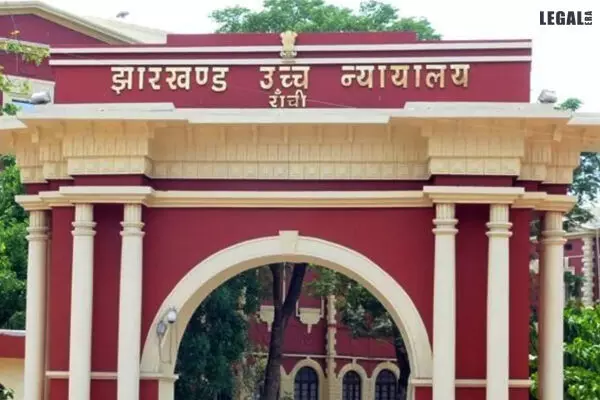- Home
- News
- Articles+
- Aerospace
- Artificial Intelligence
- Agriculture
- Alternate Dispute Resolution
- Arbitration & Mediation
- Banking and Finance
- Bankruptcy
- Book Review
- Bribery & Corruption
- Commercial Litigation
- Competition Law
- Conference Reports
- Consumer Products
- Contract
- Corporate Governance
- Corporate Law
- Covid-19
- Cryptocurrency
- Cybersecurity
- Data Protection
- Defence
- Digital Economy
- E-commerce
- Employment Law
- Energy and Natural Resources
- Entertainment and Sports Law
- Environmental Law
- Environmental, Social, and Governance
- Foreign Direct Investment
- Food and Beverage
- Gaming
- Health Care
- IBC Diaries
- In Focus
- Inclusion & Diversity
- Insurance Law
- Intellectual Property
- International Law
- IP & Tech Era
- Know the Law
- Labour Laws
- Law & Policy and Regulation
- Litigation
- Litigation Funding
- Manufacturing
- Mergers & Acquisitions
- NFTs
- Privacy
- Private Equity
- Project Finance
- Real Estate
- Risk and Compliance
- Student Corner
- Take On Board
- Tax
- Technology Media and Telecom
- Tributes
- Viewpoint
- Zoom In
- Law Firms
- In-House
- Rankings
- E-Magazine
- Legal Era TV
- Events
- Middle East
- Africa
- News
- Articles
- Aerospace
- Artificial Intelligence
- Agriculture
- Alternate Dispute Resolution
- Arbitration & Mediation
- Banking and Finance
- Bankruptcy
- Book Review
- Bribery & Corruption
- Commercial Litigation
- Competition Law
- Conference Reports
- Consumer Products
- Contract
- Corporate Governance
- Corporate Law
- Covid-19
- Cryptocurrency
- Cybersecurity
- Data Protection
- Defence
- Digital Economy
- E-commerce
- Employment Law
- Energy and Natural Resources
- Entertainment and Sports Law
- Environmental Law
- Environmental, Social, and Governance
- Foreign Direct Investment
- Food and Beverage
- Gaming
- Health Care
- IBC Diaries
- In Focus
- Inclusion & Diversity
- Insurance Law
- Intellectual Property
- International Law
- IP & Tech Era
- Know the Law
- Labour Laws
- Law & Policy and Regulation
- Litigation
- Litigation Funding
- Manufacturing
- Mergers & Acquisitions
- NFTs
- Privacy
- Private Equity
- Project Finance
- Real Estate
- Risk and Compliance
- Student Corner
- Take On Board
- Tax
- Technology Media and Telecom
- Tributes
- Viewpoint
- Zoom In
- Law Firms
- In-House
- Rankings
- E-Magazine
- Legal Era TV
- Events
- Middle East
- Africa
Jharkhand High Court: Repeated Reassessment Proceedings On Audit Party’s Diktat Can’t Be Allowed

Jharkhand High Court: Repeated Reassessment Proceedings On Audit Party’s Diktat Can’t Be Allowed
The assessing authority had passed the order under Section 42(3) of the Value Added Tax Act
The Jharkhand High Court has held that if the assessing authority is allowed to initiate repeated re-assessment proceedings against an assessee merely on the diktat of the audit party, there would not be finality of the assessment. The assessee would have the sword of Damocles hanging over him in perpetuity.
The bench of Justice Rongon Mukhopadhyay and Justice Deepak Roshan observed that under Sections 42(1) and 42(2) of the Jharkhand Value Added Tax (VAT) Act, 2005, the legislature had deliberately inserted the non-obstante clause by extending the period of limitation. However, it did not extend the period pursuant to an audit objection under Section 42(3). The Court added that it was deliberately omitted considering that reassessment proceedings would have otherwise been initiated under Section 40(1) on ‘information being received by the audit party’. But the only requirement was to record the reasons.
The Court added that the dispensation in Section 42(3) was the requirement of recording ‘reasons to believe’ only. The non-obstante clause was not inserted in Section 42(3) extending the period of limitation from the date of receipt of audit objection. Thus, the period of limitation would be governed by Section 40(1) read with 40(4) of the JVAT Act.
The petitioner/assessee manufactures sponge iron, M.S. billets, and TMT bars. The assessee was challenged by a re-assessment order passed by the assessing authority pursuant to an audit objection raised by the office of the accountant general. The reassessment order was passed under Section 42(3) of the Jharkhand VAT.
The assessee contended that the re-assessment order was passed beyond the statutory period of limitation prescribed under the VAT Act. Section 42(3) was a provision provided wherein re-assessment proceedings could be initiated. The only enabling provision for carrying it out was contained under Section 40, read with Section 40(4), which prescribed a five-year limitation period. Since the order was passed beyond that period, it was without jurisdiction.
The department contended that since Section 42(3) did not prescribe any limitation period, at any time the re-assessment proceedings could be initiated.
The issue was whether Section 42(3) was an independent provision conferring the power of re-assessment or was merely an additional ground conferred upon the assessing authority for carrying out the proceedings.
The judges observed that although the Section prescribed no limitation period, it did not mean that suo-motu power could be exercised at any time. Under the VAT Act, provisions of limitation for carrying out assessments, audit assessments, scrutiny assessments, re-assessment proceedings, etc. were prescribed to be three to five years.



